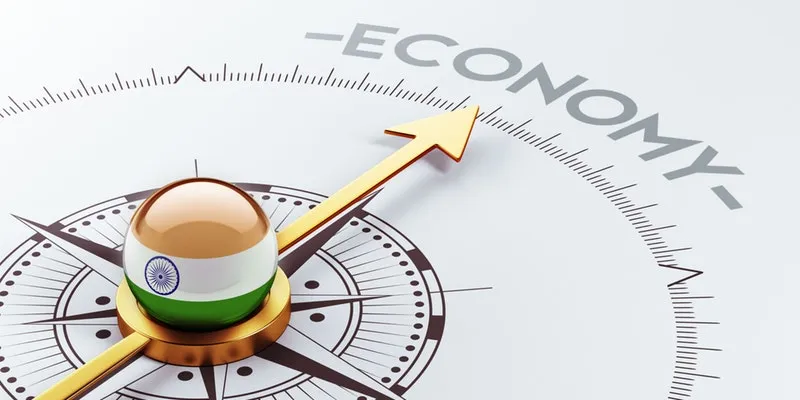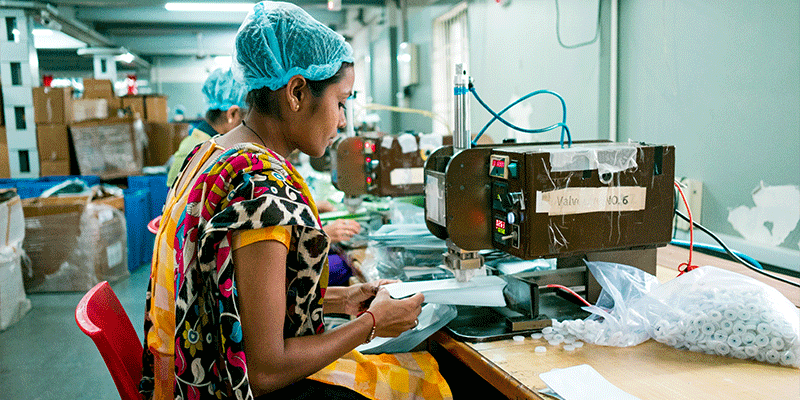How can Indian MSMEs compete in the post-COVID-19 world?
India's MSME sector has been drawing a large amount of attention since the onset of the COVID-19 pandemic. Here are some factors that can help MSMEs grow to stand up to the challenges in the post-COVID-19 era.
According to the International Monetary Fund (IMF), the GDP of nearly 90 percent of countries contracted in 2020, making COVID-19 the biggest economic recession since the 1929 Great Depression.
India’s economy, too, slowed down for the first time after a long period of growth. Nationwide lockdowns, self-isolation, and social distancing measures resulted in supply chains disruptions, and most businesses were under threat.
According to the Dun & Bradstreet COVID-19 commerce disruption tracker, about 99 percent of companies were disrupted in April 2020. The impact was more severe for MSMEs.
India has more than 63 million MSMEs, which employ around 110 million people, and its contribution to the national GDP is around 30 percent.
These causes were related to finance, markets, technology, cultural changes, and the availing of government schemes.
Here are some factors that can help MSMEs grow to stand up to the challenges in the post-COVID-19 era.
Availing of government schemes
The government and the Reserve Bank of India (RBI) have come out with various schemes before and during the pandemic for the MSME sector. Some of these schemes are:
- The Guaranteed Emergency Credit Line (GECL) under ECLGS
- PSU mandate of number of global tenders for procurement up to Rs 200 crore
- Fund of Funds for equity infusion for MSMEs
- Reclassification of MSMEs
- Collateral free bank loans under the Credit Guarantee Scheme
- Overdraft interest rate rebate
- Protection against delayed payments
- Public Procurement Policy - SAMBANDH
- Receivables e-Discounting System (TReDS)
- Credit Linked Capital Subsidy Scheme (CLCSS) MSME
- Business loan for startups in 59 minutes.
MSMEs must also utilise the advantages of various legal and compliance relaxations like changes in IBC (Insolvency and Bankruptcy Code), the National Company Law Tribunal (NCLT) framework, implementation of the e-courts system, and alternative methods of debt resolution.
They should also be aware of the amendments such as an increase in the audit threshold limit, decriminalisation of the LLP Act, incentivisation of One Person Companies (OPCs), etc.

Managing finance constraints
Cash crunch affects the short-term and long-term plans of companies, especially for MSMEs, which puts constraints on their sustenance and growth objectives.
Despite various schemes launched by the government, loan disbursement to MSMEs remains very low compared to large enterprises in India and their counterparts elsewhere. In fact, lending institutions still maintain a not-so-friendly attitude towards small companies for multiple reasons.
This makes it critical for MSMEs to manage their cash flow well. They must work on improving their cash flow by rigorously and intelligently collecting receivables, managing payables and inventory, controlling expenses, and enhancing profitability. They should also utilise the government schemes as much as possible.
Better cash position will help MSMEs manage operations to sustain business and profitability, and drive growth through capital expenditure investments, implementing go-to-market strategies, and adoption of technologies.
Transforming business through digitalisation
MSMEs in other countries and medium and large companies in India have rapidly adopted digitalisation to transform their businesses and grow amidst the pandemic. However, Indian micro and small enterprises continue to struggle.
Digital transformation serves two purposes: first, transforming the business model, and second, providing business insights with data and analytics to help companies steer towards profitability and growth.
For example, brick-and-mortar retailers will implement technology to transform their traditional retail business to omnichannel retailing.
Until recently, technology adoptions involved substantial investments, but with the advent of cloud computing and the SaaS ecosystem, it has become affordable and easy for small companies to adopt the technology.
The understanding of digital technology and its needs will help MSMEs adopt various digital solutions. Besides improving operational efficiencies, it will enable them to access wider markets, secure more customers, and generate more revenue.
Exploring market accessibility
Exploring and developing new markets is crucial for growth and scaling. It will need MSMEs resources in the form of finance, technology, and manpower to enter new markets.
MSMEs should utilise government initiatives designed to help them explore new markets. They should also leverage the power of various business platforms that provide information and enable B2B and B2C connections.
Moreover, the pandemic has created changes and relocations in the geographic locations of businesses. For example, many manufacturing units are shifting from China to other Asian countries. India, with its large MSME ecosystem, manpower resources, and manufacturing infrastructure, should be able to fill the gap and capture the opportunity.
Enabling cultural changes
So far, the management of MSMEs has been confined in the hands of the founders and their families, who are, traditionally, averse to professional management and technology adoptions. These lags resulted in keeping small businesses devoid of growth and scale-up.
The cultural change we refer to here is about creating an environment, which would attract talent, customers, suppliers, lenders, and investors so enterprises can bring in the required professionalism and technology to drive the scale-up and growth of the enterprise.
MSMEs must explore how they can avail of SaaS models for technologies and freelance, virtual, or gig platforms for talents without the need for capital expenditure and fixed cost component in the cost structure.
The main challenge for MSMEs is to survive the COVID-19 crisis, leveraging the tools and solutions available. This will pave way for them to scale up and grow to remain competitive in the post-COVID-19 times.
YourStory’s flagship startup-tech and leadership conference will return virtually for its 13th edition on October 25-30, 2021. Sign up for updates on TechSparks or to express your interest in partnerships and speaker opportunities here.
For more on TechSparks 2021, click here.
Edited by Suman Singh











